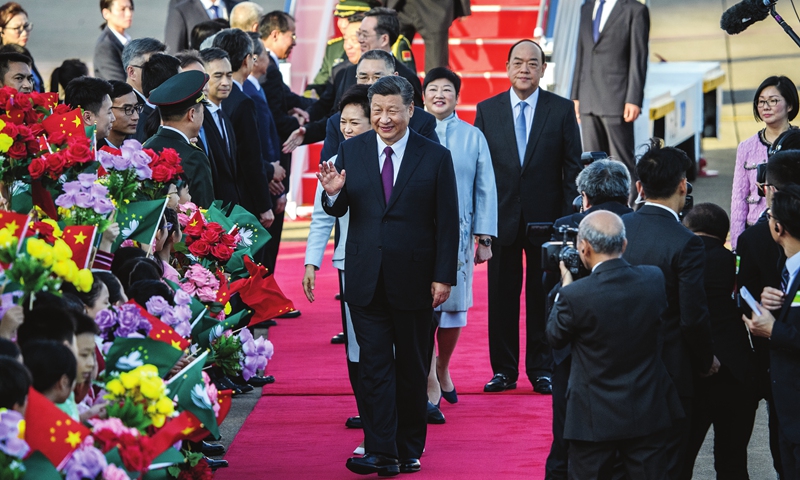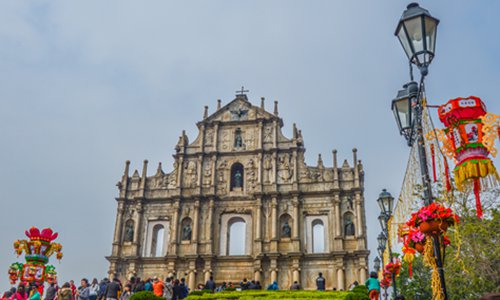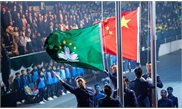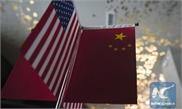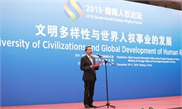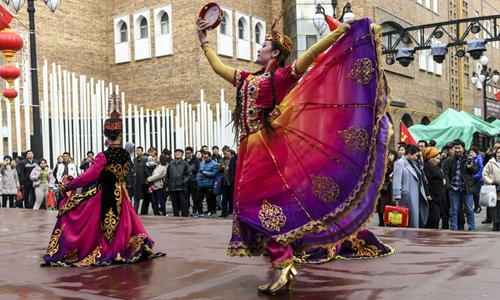 |
| Another congress on Jawi education in schools to be held ... |
 |
| Pressure builds to call off congress critical of Jawi lessons |

Dong Jong and Jiao Zong, collectively referred to as Dong Jiao Zong, have championed the cause of Chinese education since the 1950s.
This coming Saturday, heads of Dong Jiao Zong from 13 states, as well as top leaders of 30 other national Chinese associations will be congregating at Dong Jong Building in Kajang to take a stand against a set of new guidelines on the teaching of Jawi issued by the Education Ministry to non-Malay schools.
Leading Chinese groups Huazong and Hoklian have declared their support promptly.
Hua Zong president Tan Sri Goh Tian Chuan said Chinese guilds need to unite in opposing the government’s move.
“The position of the Chinese community on Chinese language education, especially on this subject, needs to be consistent,” he said.
The bone of contention lies in the new guidelines issued by the Education Ministry on the teaching of Jawi scripts for Standard Four pupils in Chinese and Tamil primary schools.
In the guidelines issued earlier this month, the teaching of Jawi scripts will be optional. But if 51% of parents vote in favour of it in a survey conducted by Parent-Teacher Association (PTA), then schools will have to teach Jawi.
In this PTA survey and voting process, the school BOD is totally left out.
Responding to Dong Jiao Zong’s Dec 12 press conference, deputy Education Minister Teo Nie Ching told Bernama the ministry prioritised the opinion of the PTAs as well as the parents and students themselves.
- Datuk Eddie Heng Hong Chai
“We will let the PTAs make the decision because it’s about their children’s learning. Parents are the guardians, so you should get their consent if you want to do anything,” she said on Dec 13.
But to the Chinese community, the BODs are the dragon heads of schools. Hence, they cannot be sidelined in any decision-making. In a Chinese school, BOD members – who could include businessmen, parents, alumni and trustees -- are expected to donate money, raise funds and formulate policies.
As government funding for Chinese primary schools is often lacking, raising funds for development and repairs of schools often rest on the shoulders of the BOD.
Dong Jiao Zong has argued that this new guidelines not only “defies the decision made by the cabinet”, but also “goes against Article 53 of the Education Act 1996” in which authority is vested in the BOD in schools.
“By allowing the parents to have the final say on this matter, the harmonious and amicable relationship among parents and students from different races will be undermined. This will also marginalise the school board as well as PTA,” Dong Jong chairman Tan Tai Kim said in a statement last weekend.
Dong Jiao Zong’s statement also noted that in the new Bahasa Malaysia (BM) textbook for Standard Four, the appreciation of Chinese caligraphy and Tamil writing are left out.
In the past, pages on Jawi, Tamil and Chinese writings appeared in the Standard Five BM text book; and Dong Jiao Zong was happy with the multi-racial content.
The new BM text book for Standard Four contains three pages on Jawi scripts, without Chinese and Tamil writings.
“The key point to note here is: we are not anti-Jawi or anti-Malay or anti-Islam. There is no issue if students are asked to learn all cultures. But we don’t want to see the gradual Islamisation of Chinese schools and the marginalisation of BODs,” says a Chinese educationist, who declines to be named.
Due to the sensitivity of this matter which could be racially or religiously distorted, Dong Jiao Zong -- the organiser of the Dec 28 meeting – has advised invited community leaders to register early.
In the latest statement on Wednesday (Dec 18), Dong Jiao Zong said to ensure the meeting could be effectual and held smoothly, no one is allowed to bring banners and other publicity materials to display slogans.
Provocation is the last thing Dong Jiao Zong wants to see, given that there are already two Malay groups challenging the constitutionality of Chinese and Tamil schools in the country.
The congress is likely to adopt a resolution urging the Jawi Scripts Learning Guidelines issued by the Ministry of Education to be withdrawn, and the text book be amended to reflect multi-culturism in the country.
Apart from Dong Jiao Zong, there are other independent groups and political parties voicing similar concerns.
One group that recently sprang up is the one led by Datuk Eddie Heng Hong Chai, who heads the school board of SJK(C) Sentul KL.
At a recent press conference, the businessman opined the teaching of Jawi calligraphy in vernacular schools should be a co-curricular activity.
His group, consisting of representatives from vernacular school BODs and PTAs around Kuala Lumpur, has called for a dialogue with Education Minister Dr Maszlee Malik.
“I wish to emphasise that we are not against the teaching of Jawi in schools. We are only opposing the ministry’s decision to include it in the Bahasa Melayu syllabus, ” he told a joint press conference with an Indian group.
“We are concerned that once the precedent (of sidelining school board) is set, school boards will lose their voice in future policies affecting Chinese primary schools, ” Heng said.
With school boards being the founder and pioneer for Chinese primary schools for over 200 years, Heng said school boards always had the authority in deciding school policies.
Gerakan, a political party in the former government, last week announced its plan to appeal against an earlier high court ruling that the court has no authority to interfere with Government decision on introducing Jawi into vernacular schools.
From the education point of view, many academics – irrespective of race – do not see the need for students to learn Jawi.
They have asked: What could students learn from three pages of Jawi in a year? Is there any benefit to their future career? Shouldn’t there be more emphasis on the teaching of English, Science and Maths to prepare Malaysians to be competitive internationally?
Indeed, this current education issue is not the first to stir up an uproar this year.
The first controversy erupted several months ago when the Education Ministry attempted to introduce khat (Arabic calligraphy) into vernacular schools. This decision was later withdrawn after many quarters opposed it.
But the new set of guidelines on Jawi writing is creating another unwarranted chaos.
There is suspicion in the Chinese community that there are elements within the Education Ministry scheming to gradually change the character of Chinese schools.
This deep-rooted mistrust against the Ministry cannot be easily erased because Chinese education has often come under different forms of suppression since the 1950s.
From the political perspective, there is talk that the ruling parties are pandering to ultra Malay politics to gain Malay support.
As the controversy escalates, the DAP – a major Chinese-based party in the ruling Pakatan coalition – appears to be the one feeling the most heat.
This is because the DAP drew most of its political support from the Chinese and Indians in the last general election.
The DAP leaders in Cabinet are expected to reflect the fear and sentiment of the non-Malays to the Education Ministry and the Prime Minister on the Jawi issue.
But so far, only Penang Chief Minister Chow Kon Yeow – also a DAP national leader – has openly voiced concern over this baffling issue and said it should be resolved speedily.
If the voice of non-Malays is not taken seriously, and the government continues to ignore inclusive politics, the ruling Pakatan coalition risks being rejected by the people.
Source link
Read more:
Chinese educationist group has democratic right to organise congress
Dec 28 gathering a consultative meeting, not racial stand-off, says NGO
Wee: Dong Jiao Zong gathering about vernacular education, not race
Dr M: Any rally protesting teaching of Jawi calligraphy will split country further
Jawi issue: Anwar urges all parties to call off gatherings
Dong Jiao Zong stands firm
Dr M’s old ideas clash with new realities in KL Summit
Related posts:
Losing faith in reform of Malaysian education system
Malaysia failed because education ministry didn’t get priorities right !

Malaysia’s Public Universities Falling Behind
Malaysia must retool education, skills to adapt to knowledge economy
Let’s talk economy – the sequel of education
https://youtu.be/FVnBpckzi5U
Malaysia's education policy must champion Meritocracy instead of Mediocrity system
 |
| Meritocracy Vs. Mediocrity |
Race and religion, the sorry state of our unity
Malay Dignity: Whither Malaysia now?
The Meritocracy Paradox Pakatan Harapan’s
unexpected win in the recent 14th General Elections sent a signal that
it is time for the cou...

Malaysia's Vision 2020: Falling apart with alarming speed; Dr M is creator and destroyer, said Musa
In his keynote speech at an event to mark the sixth anniversary of the Institute for Democracy and Economic Affairs (Ideas), Musa said this was because the former premier did not train leaders but instead chose to retain and train

Truths about Xinjiang the Western media won't tell https://youtu.be/smxScIJ-CP4 CGTN recently released two documentaries about..














